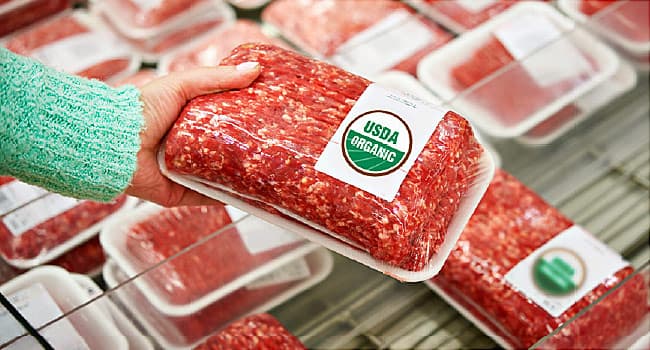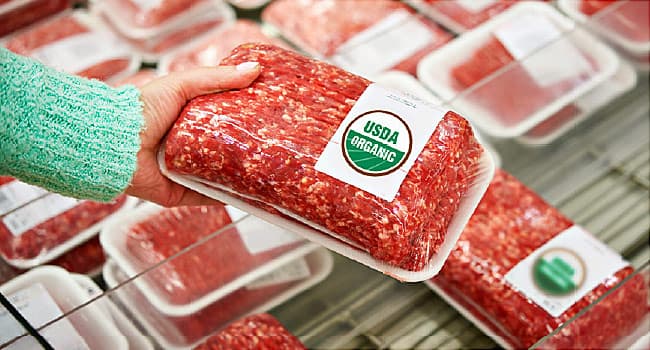
April 8, 2022
Some of the beef cattle in a no-antibiotics program tested positive for antibiotics, which could call into question the “raised without antibiotics” label on products, according to a new study in Science.
Most cattle in the study — about 85% — tested negative for antibiotics. However, 10% came from lots where at least one cow tested positive, and another 5% came from lots with multiple positive tests.
“These findings provide empirical evidence that a material portion of beef products currently being marketed with [raised without antibiotics] labels is from cattle that were treated with antibiotics,” the study authors wrote.
Researchers at George Washington University’s Antibiotic Resistance Action Center and Food In-Depth, a food-testing company, tested the urine of nearly 700 cows at one slaughterhouse that processes “raised without antibiotics” cattle. All of the cattle were part of a “no antibiotics ever” program, with a subset produced under the Global Animal Partnership program, an animal welfare rating program pioneered and used by Whole Foods.
By using a rapid test that screens for 17 antibiotics commonly administered in feed and water, the research team sampled animals from every lot of cattle delivered for processing at the slaughter facility over seven months. They tested animals from 312 lots and 33 different feedyards, representing about 38,000 cattle or 12% of U.S. raised-without-antibiotics beef production during the study period.
The researchers found that three feedyards had multiple lots in which all samples tested positive for antibiotics, and four feedyards had all samples test positive in a single lot. In addition, seven feedyards had a positive sample in more than one lot, and 14 had at least one animal test positive.
Overall, lots with at least one positive test represented about 15% of the raised-without-antibiotics cattle processed at the slaughter facility during the seven months. About 26% of cattle slated for the Global Animal Partnership program came from a lot with at least one positive test.
“These findings suggest that today’s RWA labels lack integrity,” the study authors wrote. “Although our testing was limited to beef cattle, other meat and poultry sectors are vulnerable to similar incentives.”
The U.S. Department of Agriculture is charged with monitoring antibiotic use and verifying label claims such as “raised without antibiotics,” according to The Washington Post. A USDA spokesman told the newspaper that the agency looks forward to reviewing the study more closely to determine the next steps but said that “there is no indication within the study that the meat tested is unsafe to consume.”
The Global Animal Partnership program is also looking into the results, the newspaper reported.
“It’s hard to ascertain how big the problem is, if it is truly systemic or if we have a few bad apples,” Anne Malleau, executive director of the program, told The Washington Post.
Whole Foods also said it remains committed to its promise of no antibiotics in its beef, Spencer Taylor, the company’s principal sustainability advisor, told the newspaper.
“We have extensively reviewed the information made available to us and have no reason to believe that the cattle tested in this study ended up in products in our stores,” Taylor said. “We take compliance very seriously and never hesitate to act if a supplier has failed to meet our rigorous quality standards.”
The study authors recommended several policy reforms, including a rigorous USDA verification system to ensure that “raised without antibiotics” claims are accurate.
Under the current system, the USDA designation of “raised without antibiotics” can only go to producers that sign an affidavit and submit documentation that supports their claims, the newspaper reported. The USDA’s Food Safety and Inspection Services verifies the documentation provided with label applications and can take away the label if there is evidence that the claims are inaccurate.
At the same time, the USDA tests for “maximum residue limits” that focus on antibiotic levels that present danger to human health, rather than zero antibiotics, the newspaper reported.
“For meaningful verification, the USDA should conduct or require continuous, on-site empirical testing for antibiotics on a meaningful number of animals from every lot delivered for processing,” the study authors wrote.
